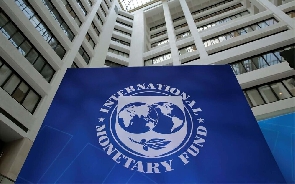Ghanaians have had to bear the brunt of the economic challenges in recent years, and the news of the country's struggle to secure a deal with the International Monetary Fund (IMF) for a $3 billion bailout may have left many in despair.
However, there is hope on the horizon as the government has made significant strides toward fulfilling the conditions set out by the IMF, and a deal may be closer than many fear.
While some may be quick to point out the challenges the country faces, including high levels of debt, inflation, and unemployment, it is important to note that the government has taken decisive action to address these issues.
Ghana's economic challenges are not unique, and the country has shown resilience in the face of previous economic crises. With the successful process of the domestic debt exchange program and the support received from other creditors, there is reason to believe that Ghana can secure the IMF deal sooner rather than later.
The government's efforts to address the country's debt crisis are laudable. The recent domestic debt exchange program was successful, with over 96% of the targeted bondholders agreeing to the debt swap. This program will help the government to reduce its debt burden, making it more sustainable in the long run.
Despite the scepticism of some experts, including former Minister for Finance, Seth Terkper and the Minority Caucus in Parliament, who believe it may be difficult for Ghana to secure an IMF deal by the end of March, it is worth noting that the government has made significant progress in fulfilling the conditions set out by the IMF.
The negotiations with the Chinese and other external creditors are ongoing, and the government is working tirelessly to meet the outstanding obligations and targets required for the board-level agreement to be approved.
Ghana's economic challenges cannot be solved overnight, and the government's efforts to address them will require time and patience. Quite refreshing is the fact that the IMF has been supportive of Ghana throughout this process, and it is highly unlikely that they would abandon the country as it draws close to a bailout.
The staff-level agreement reached in December 2022 is a positive sign that the IMF is committed to supporting Ghana's economic recovery and it is only a matter of time before Ghana secures a deal with the Fund.
The IMF deal is crucial for Ghana's economic recovery, and the government is aware of the urgency of the situation. The deal will not only provide financial support but will also set the stage for a strong economic recovery in the country. The government's commitment to fulfilling the necessary requirements for the deal is a positive sign and should be applauded.
Of course, it is important to remain realistic and acknowledge that there are still challenges to be faced. The negotiations with external creditors, such as the Chinese, may take more time than expected. However, it is important to stay focused on the end goal and not lose sight of the progress that has already been made.
Therefore, instead of despairing over the possibility of missing the March deadline, Ghanaians should continue to support the government's efforts to improve the economy. This includes supporting the government's efforts to address the underlying issues. This can help create a more conducive environment for economic growth and development.
It is also important to acknowledge that the IMF deal is not a silver bullet that will magically solve all of Ghana's economic problems. The government must continue to implement sound economic policies that prioritize job creation, investment, and poverty reduction. The government must also ensure that the funds from the IMF are used effectively and transparently.
Ghanaians should not despair because the IMF deal is closer than feared. While there may be challenges along the way, the government's commitment to meeting the targets set by the IMF and the potential benefits of the deal make it a worthwhile pursuit.
It is important to remain optimistic and continue supporting efforts to secure the deal for the betterment of Ghana's economic future.
Opinions of Monday, 27 March 2023
Columnist: Emmanuel Boakye Ansah



















